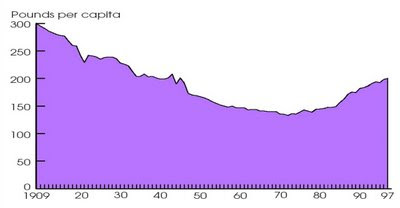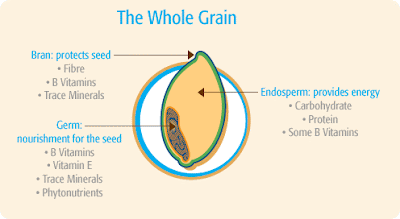Is a vegan diet for everyone?
If consciously crafted, a vegan diet has profound health advantages and allows us to best care for our environment and live in alignment with our innate compassion. So yes, a type of vegan dietary pattern could be ideal for the vast vast majority of humans. And yet, we can't deny that some people (read: the minority) struggle to make a vegan dietary pattern work for them.Why do SOME people not thrive on a vegan diet? And what can you do about it.
Frankly, this question hasn't been well researched and is poorly understood. But here are a few hypotheses that are worth considering if you or someone you know is not doing well on a vegan diet.1. Not Enough Calories
One great advantage of a vegan diet is lower calorie density. People often lose weight when they go vegan. This is super awesome for the majority of people, but not necessarily for relatively-thin, highly-active young people who are also very health conscious. Chances are these people have less appetite-drive and don't absorb calories as well as others. They probably avoid food when they are anxious/stressed and avoid binging on calorie-rich foods. They tend to choose the least calorically dense foods possible because these are healthier - like raw veggies and brown rice.For some of these folks, they simply will not always be meeting their caloric/energy needs and they might feel more fatigued then usual overtime. Perhaps this is the brain's way of saying "slow down, there just isn't that much food around to support all this extra activity". They might feel better when they return to eating animal products, simply because they begin eating more calories and have a less restricted diet.
Rather than adding back the animal products, a better solution is do some creative meal planning and figure out ways to add back the missing 500 or so calories. There are lots of ways to do this, from emphasizing fat rich foods (e.g avocado, nuts, seeds, coconut) to making food more dense (e.g. smoothies, dehydrated foods/food bars, nut butters, dried fruit) to even sometimes choosing more processed foods (e.g. white rice) and including more protein-concentrated foods (e.g. seiten).
2. Junk-Food Vegan
On the opposite side of the coin is the junk food vegan that lives off vegan pizza, tofutti, french fries, soda, vegan cupcakes, etc. This we know: just because it's vegan, doesn't mean it's healthy. Believe me, I <3 my vegan junk food on occasion. But the problem here is no different from the standard american diet: you are crowding out the nutritious life-sustaining food and stuffing yourself silly with crap.3. Social Isolation Syndrome
It amazes me how poorly we appreciate the effects of social isolation. Watch this video to see how physiologically powerful physical and social isolation can be. Being vegan doesn't mean you have to be socially isolated, but for a few it can make them feel more isolated. This is not a recipe for optimum health.Early adopters have to cope with a little isolation, but one idea how is to cultivate a greater sense of compassion for human-animals who eat other animals. They are just as flawed as you are and there's no reason they can't be your friend, share meals with you, be your lover, etc. In fact, if you really want to influence the world, the more you hang out with these creatures the better. (unless of course you're a miserable conspiracy-lover who refuses to shower and thus has the effect of decreasing the odds that other people will move to a vegan diet. Apologies for the rant.)
4. It's Not The Food
Food makes a huge impact in health. Ok. But just because you're vegan doesn't mean that really bad stuff can't happen to you. And it doesn't mean that every health problem you have has something to do with your diet.Genetics, horrific bad luck, mood/psychology, drugs, infections, and many other factors can trump diet. It's always wise to considering whether your diet caused the problem or can contribute to healing it, but you've got to be open to the idea that it might have nothing to do with what you eat.
Also remember that many people became vegan because their health was not optimal to begin with. Those same underlying issues might not go away on a vegan diet, and some might get worse over time.
5. Unmasking Effects & Rare Genetic Disorders
Changing your lifestyle can, in rare cases, unmask hidden problems. For example, fructose malabsorbtion - a not too uncommon issue whereby eating concentrated fruit sugar causes irritable-bowel like symptoms and is associated with depression. If you suddenly start eating fruit-juice sweetened desserts and more fruit and fruit juice, then these symptoms will get worse. The solution is a plant-based diet that favors vegetables over fruit and avoids concentrated fruit sugar and juice and minimizes refined sugars.Another example is diabetes in a long-time Atkins-style eater. If you eat no carbohydrates but are very overweight and have insulin resistance, switching to a more carb rich plant-based diet may initially make blood sugar control worse. The answer is weight loss, avoiding processed carb-rich foods, eating only healthy fats, exercise, minimizing/moderating fruit, along with a high-fiber vegan diet.
Finally, there is also at least one type of rare genetic disorder involving carnitine transport which can be mitigated by carnitine-rich foods (i.e. meat). However, this is better treated with high dose carnitine supplements then with meat. Dr. Greger has a great post on this.
6. Under Supplemented
Yes, it would be ideal if we got all our nutrients from our diet. Frankly, there are just some cases where this is not possible (vitamin D, vitamin B12). And there are some individuals who need higher levels of some nutrients (iron, zinc, omega-3s) because they don't absorb them well for whatever reason. This is true for meat-eaters too.Sometimes, you've just got to add some supplements to your diet. Some vegans have a ridiculous hang-up about taking an "unnatural" supplement. While I applaud their idealism, they are doing themselves and our movement a huge disservice.
At the same time, I'm super skeptical of the functional/orthomolecular medicine folks who advocate massive supplement regiments to cure everything.
7. High-Fiber Exercise-Deficiency
We did not evolve to blog. Or read blogs or work at a desk. Sitting is one of the worst things for your health, and we do it all day. My sense is that our guts function way better when we are regularly active and that exercise becomes even more important when you increase your fiber intake.A very high-fiber diet with a sedentary high-stress lifestyle can set you up for a lot of bloating and gas pain. The solution is daily movement/exercise and plenty of water.
8. Beat By Cravings
Our understanding of cravings is amateur. Just because your brain craves something doesn't mean you have a deficiency. Craving chocolate does not mean you are magnesium deficient. Craving meat does not mean you are iron deficient and need to go back to killing animals for sustenance.It's not to say that cravings can't have true information embedded in them, it's just that it's complex. For example, we make psychological associations with food. When we are stressed, we seek comfort, and food is one way to get comfort. Thus when stressed I might crave my comfort food, not because I need the nutrients in the food but because I need to be comforted. Your comfort food is probably different from mine - not because we have different blood types (or other such nonsense) but because of the different exposure to comforting food we had as kids.
Another random psychological nuance: the more one tries to avoid thinking about something, the more likely one is to think about it. If you are obsessed with avoiding meat, you are more likely to think about it and to crave it. We are funny creatures that way.
One last example, dissection lab -- the formaldehyde has been known to illicit cravings for meat. You can imagine how disturbing that is to an unaware vegan med student, on many levels.
Point being -- cravings are complex and often misinterpreted. Take them with a grain of salt. Roll with them and focus your attention elsewhere when the craving defies common sense.
What Else? & What if My Problem isn't on this list?
This is not an exhaustive list, and admittedly it is a list of hypotheses, but chances are the reasons people don't thrive on a vegan diet are fairly small in number and have a feasible solution if there is a will, an understanding and a few good measures of creativity.Sometimes it can be hard to figure out (or you lack a doctor who can help you figure it out), and sometimes adding back some animal-products seems to make the difference and provide a sense of well-being that was missing. In that case, think of the animal-products as supplements - not to be eaten at every meal, but in the smallest dose possible. You'll still be eating a predominantly plant-based diet and doing a lot for your health and the world.



